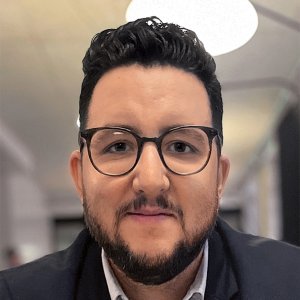IP Facing a War

STORY INLINE POST
Beyond the COVID-19 pandemic, the beginning of 2022 promised to be a year of recovery in which countries would reopen their societies and thus their economic activities. We understood that it would be difficult to revive the global economy in just a few months but the light at the end of the tunnel was in the distance. It would take months for economic indicators to return to the levels we had at the end of 2019 but we were beginning to traverse the upward path to recovery.
We were almost at the end of the second month of the year when an unexpected event turned the eyes of the world to the easternmost part of Europe, an area where a few years ago, a political conflict had started. It escalated in 2021 and finally in February of this year, Russia invaded Ukrainian territory. The attack attracted everyone's interest because of its sensitivity and the gigantic impact on our society.
Of course, the most dramatic aspect is the number of human losses, on both sides. However, given the influence that these two countries have on the world economy, the impact that the war is having on different markets is also relevant, ranging from grains and agricultural products to oil, natural gas and coal, and even intellectual property rights.
This armed conflict has generated any number of reactions from the world community and with it, also the imposition of sanctions that have put Russia in a delicate situation in which it had not found itself before.
Sanctions imposed by many countries of the Western bloc have complicated Russia’s sustainability, even though it has been said that the country was prepared to face such a foreseeable situation. As was to be expected, the Russian government's response was not long in coming and it has taken reactive measures to the sanctions imposed on it.
Of the sanctions imposed and Russia’s reactions, the one that has generated great controversy for our practice is the measures taken by the Russian government in the field of intellectual property. Two facts have aroused great concern among the world community that to some extent has business within Russian territory. The first is the government's tolerance of the granting of trademarks similar to intangible assets that large transnational companies have protected around the world and which, recently, some Russian companies have tried to register with cyrillic spellings and logos with the clear intention of copying well-known trademarks, such as those of McDonald's, Coca-Cola and Starbucks.
On the other hand, there is also the circulation in the media of information regarding the apparent "legalization" of piracy in the face of a statement that there would be no limitations on the use of technologies protected by patents of right holders from "unfriendly" countries.
Evidently, these two situations flagrantly violate every basic rule of international trade and, of course, go against the provisions of international treaties, such as TRIPS, calling into question the protection of intellectual property rights in Russia.
In view of the international community's concern on this issue, the Russian government emphasizes that it is implementing this decision based on two legal principles: Article 31 of TRIPS and its consistency with the Siracusa Principles.
The question that many of us are probably asking ourselves is, what is really happening in Russia on this issue? Regarding the trademarks requested by Russian companies, which clearly violate the rights of transnational companies, there have been several communications stating that, even though these trademarks are being applied for, in no way will they benefit from a grant that is not supported by a substantive examination based on absolute and relative grounds. This clarification makes it possible to foresee that these applications will be denied at the examination stage and, therefore, they will not be granted, thus maintaining the rule of law and guaranteeing the rights of the current owners.
Regarding the exploitation of patent-protected technologies, Russian authorities state that they are not allowing the use of patents indiscriminately. The Russian government has decreed that it may allow the use of such patents, without the consent of the current patent holder, provided that the patent holder is notified and a commensurate compensation for the use of such patents is established. Basically, what is established is a compulsory licensing measure. However, what created the greatest controversy was that on March 6, 2022, the Russian government published a decision determining the methodology for the calculation of the amount of such compensation, which was supplemented with a special condition. This condition establishes that the amount of compensation to be paid to the respective right holders from countries considered as "unfriendly" would be 0 percent. The decision caused great dissatisfaction among the companies holding rights in that country who, due to a decision not attributable to them, may see their interests affected since, de facto, there is the possibility that a third party may exploit their technologies without the payment of the corresponding compensation, even under these war conditions. Under regular circumstances, when it is necessary to grant a compulsory license to a company due to limited access to products due to shortage or inaccessibility to the technology, the right holder would have a proportional compensation of 0.5 percent. Given the unilateral decision of the Russian government, holders of patent rights will not be able to access this compensation, thus disrupting the legal certainty of many companies that could be affected by this measure.
It is important to establish that at least as of March there were only two known cases in which a compulsory license had been granted and both were related to drugs for the treatment of COVID-19 due to shortages in the market. As far as we know, at least one of them has had access to the proportional compensation of 0.5 percent of the revenues.
The reality is that the situation is still uncertain. The countries that have imposed economic sanctions are consequently ceasing their activities on Russian territory and are trying as best as possible to keep their intellectual property rights guaranteed in that country. So far, there is a great deal of concern about these eventual decisions by the Russian authorities, but there is nothing concrete. There is no clarity on the controversial Peppa Pig case, which will be a thermometer of what may happen in the following weeks or months. There is no certainty as to whether the measures decreed by the Russian government are provisional until the crisis ends or whether they will be adopted as a new criterion. The only certainty is that intellectual property is currently facing an onslaught that it has not experienced for many years: a war situation that is challenging intellectual property, like many other regulations, to guarantee legality and the rule of law in general. The impact is already being felt and will be felt to a greater extent as the conflict continues to grow. What is most desirable is that, in a few weeks, we can return to analyze the issue and say that things are back on track. Countries, economies, legal systems, companies, but fundamentally people require a profound environment of legality in all senses.








 By Fernando Becerril | Independent Contributor -
Thu, 04/28/2022 - 14:00
By Fernando Becerril | Independent Contributor -
Thu, 04/28/2022 - 14:00














